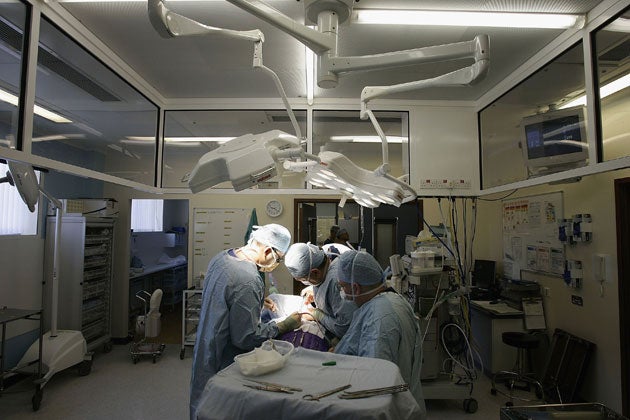NHS doctors bullied into silence over dangerous practices

Senior doctors who speak out against dangerous practices are being frustrated or even bullied into silence, according to new research by the British Medical Association (BMA).
Three-quarters of hospital consultants surveyed have had concerns about patient safety, professional misconduct or bullying at some point, and seven out of 10 have spoken out to managers. But one in six said they had been warned that whistleblowing could jeopardise their careers, despite laws that supposedly protect NHS staff who report substandard care.
The publication last week of the BMA's Speaking up for Patients report comes less than two months after Margaret Heywood was struck off the nursing register for professional misconduct, because she went undercover to expose the treatment of elderly patients for a BBC documentary.
This led to warnings from Dr Peter Gooderham at Cardiff Law School that another scandal like that in Mid-Staffordshire, where up to 1,200 people may have died as a result of poor care, is "probably already happening" as staff are too scared to speak out.
Doctors and nurses claim that the current law is inadequate and that whistleblowers need much greater legal protection if they are to prevent another patient safety disaster.
The BMA's Dr Jonathan Fielden said: "No doctor, no nurse, no porter, anywhere in the NHS should be made to feel that speaking up for their patients is a bad career move. Their concerns must be taken seriously and acted upon, and ideas for improvements should always be encouraged. It is worrying that some trusts seem to be stifling professional voices. This culture of inactivity and despair is preventing issues from coming to light and putting patient care at risk."
The survey of 565 senior doctors found only four out of 10 worked in a hospital where they felt concerns could be expressed openly and without fear.
Nearly half did not know if any action had been taken as a result of complaints, while 15 per cent claimed never to have been approached for further information – suggesting a complaint was dismissed, or not taken seriously.
But, despite negative experiences, most doctors questioned said they were still determined to speak out.
The survey results will inform the BMA's guidance on whistleblowing, due out next month, which will remind doctors that speaking out is a professional responsibility, and, if in doubt, they should err on the side of caution.
A Department of Health spokesperson said: "All doctors have a professional duty to act... If they have used the reporting processes to no avail, they should blow the whistle with full protection under the law. The independent charity Public Concern at Work provides confidential advice and support for people blowing the whistle."
Join our commenting forum
Join thought-provoking conversations, follow other Independent readers and see their replies
Comments